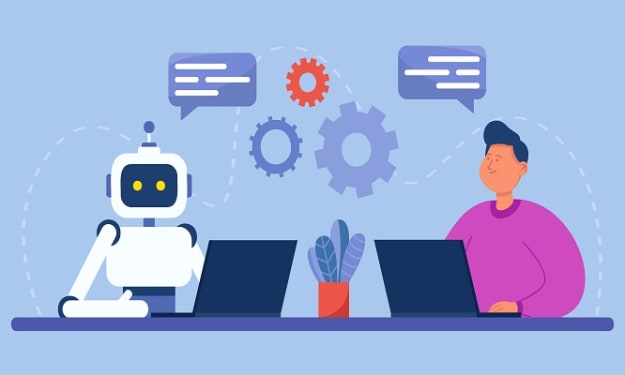The Evolution of AI Tools: Empowering Innovation and Efficiency
Unleashing the Power of AI: Revolutionizing Innovation and Productivity

In recent years, the rapid advancement of artificial intelligence (AI) has revolutionized various industries and sectors. One critical aspect behind this progress is the continuous development and improvement of AI tools. These tools, designed to enhance and streamline AI research and applications, have become essential assets for researchers, developers, and businesses alike. In this article, we explore the evolution of AI tools and their transformative impact on innovation and efficiency.
AI tools encompass a wide range of software frameworks, libraries, and platforms that enable researchers and developers to build, train, and deploy AI models. Taking an artificial intelligence course can help practitioners effectively utilize these tools, providing the necessary infrastructure and resources to harness the power of AI. This allows them to focus on solving complex problems rather than spending excessive time on technical implementations.
One notable advancement in the field of AI tools is the emergence of comprehensive frameworks like TensorFlow and PyTorch. Developed by Google and Facebook respectively, artificial intelligence training on these open-source frameworks have gained immense popularity among AI practitioners. Offering a rich ecosystem of libraries and APIs, they simplify the process of building and training deep learning models. Their flexibility and scalability have made them go-to choices for both research and industrial applications.
The evolution of AI tools has also led to the rise of specialized libraries tailored to specific AI tasks. For instance, libraries such as OpenCV and scikit-learn, along with artificial intelligence training, provide powerful computer vision and machine learning capabilities. These libraries not only enhance productivity but also promote collaboration by providing standardized tools and interfaces.
Another crucial aspect of AI tools is the emergence of cloud-based platforms.loud providers like Amazon Web Services (AWS), Microsoft Azure, and Google Cloud Platform (GCP), in collaboration with best artificial intelligence courses, offer AI services that eliminate the need for extensive hardware infrastructure and maintenance. These platforms provide pre-configured environments, such as Amazon SageMaker and Google Cloud AI Platform, which simplify the development and deployment of AI models. Moreover, they facilitate scalability, enabling organizations to scale their AI initiatives according to demand.
One area where AI tools have made significant strides is in natural language processing (NLP) and language translation. Tools such as spaCy, NLTK, and the Transformer architecture-based models, including OpenAI's GPT, have revolutionized language-related tasks. These tools have transformed the way we communicate, enabling chatbots, virtual assistants, and machine translation systems to understand and generate human-like text. They have also paved the way for advancements in sentiment analysis, text summarization, and language generation.
As AI tools continue to evolve, they are also becoming more accessible to non-experts, thanks to artificial intelligence training courses. This democratization of AI tools allows individuals from diverse backgrounds to leverage the power of AI without extensive programming knowledge. User-friendly platforms like Google's AutoML and IBM Watson Studio provide intuitive interfaces that simplify the process of building and deploying AI models. These tools empower domain experts to harness AI's potential and make data-driven decisions in their respective fields.
Moreover, the integration of AI tools with other emerging technologies is driving innovation across various sectors. AI-powered tools combined with the Internet of Things (IoT) enable smart and connected systems, revolutionizing areas like healthcare, transportation, and agriculture. The convergence of AI and edge computing facilitates real-time decision-making and enhances efficiency by processing data at the network's edge.
Despite the remarkable advancements, challenges remain in the field of AI tools. The ethical implications of AI, including biases in training data and algorithmic transparency, need to be addressed. Additionally, ensuring data privacy and security is crucial to maintain public trust in AI systems.
END NOTE:
AI tools have played a pivotal role in the rapid advancement and adoption of artificial intelligence. From comprehensive frameworks to specialized libraries and cloud-based platforms, these tools have empowered researchers, developers, and businesses to innovate and improve efficiency. As AI continues to reshape industries, the evolution of AI tools will continue, further fueling the transformative potential of this groundbreaking technology.





Comments
There are no comments for this story
Be the first to respond and start the conversation.